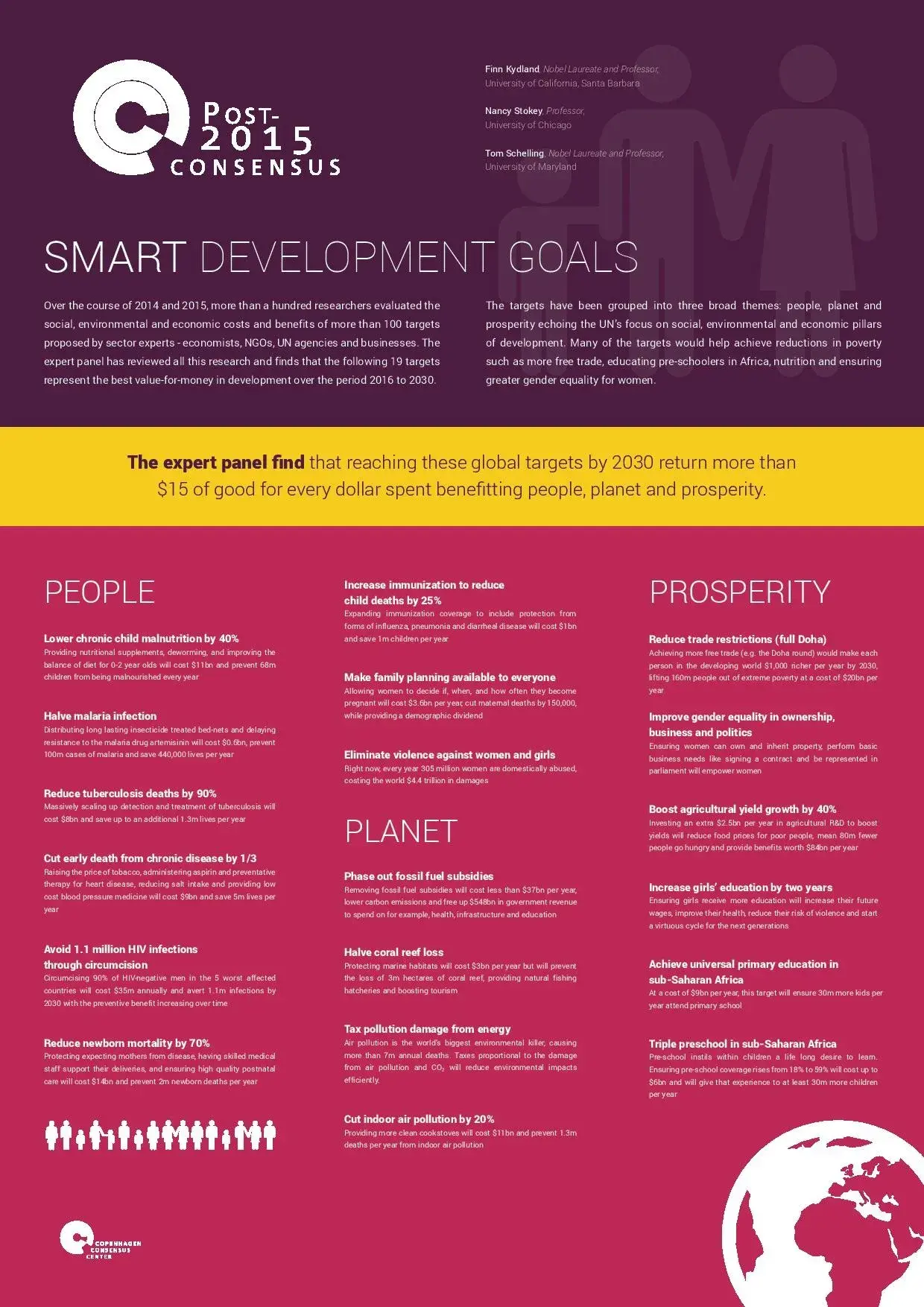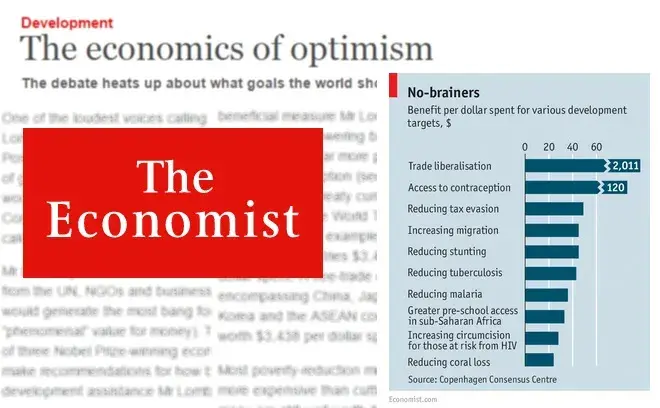Population and Demography: What's the smartest SDG target?

As reported by Britain's The Telegraph today, providing universal access to sexual and reproductive health services and eliminating the unmet need for contraception will reduce population growth. It will annually result in 640,000 fewer newborn deaths, 150,000 fewer maternal deaths and 600,000 fewer children who lose their mother. With fewer kids, the parents can afford better schooling. At the same time, societies will enjoy a demographic dividend, with few dependents and many in the work force, driving faster economic growth.
Professors Hans-Peter Kohler and Jere R. Behrman from the University of Pennsylvania estimate that the costs will be about $3.6 billion/year, but the benefits are more than $400 billion annually. In total, each dollar spent will do $120 of benefits.
At the same time developed countries face a problem of ageing. The authors suggest that we should tackle this in a simple way: increasing access to migration, which will rejuvenate ageing workforces and, has benefits of more than $45 per dollar spent. This is much more effective than increasing fertility organically within rich countries via subsidies or incentives.
You can read all the papers on population and demography here and download the one page PDF here.
The smartest targets for the post-2015 development agenda
What are the smartest targets for the post-2015 development agenda?
In a world of limited resources, we can’t do everything, but how should we prioritize? The Copenhagen Consensus Center provides information on which targets will do the most social good relative to their costs. The final decision on choosing goals will definitely rest on a number of factors, not just economics – but knowing the costs and benefits provides an important piece of information.
The Post-2015 Consensus brought together, renowned experts from the UN, NGO and private sectors with 60 teams of economists to produced 100+ research papers to establish the most effective targets for the post-2015 development agenda within 22 core issue areas: Air Pollution, Biodiversity, Climate Change, Conflict & Violence, Data for Development, Education, Energy, Food Security, Gender Equality, Governance & Institutions, Health: Chronic Diseases, Health: Health Systems, Health: Infant Mortality & Maternal Health, Health: Infectious Diseases, Infrastructure, Illicit Financial Flows, Nutrition, Population & Demography, Poverty, Science & Technology, Trade, and Water & Sanitation.
An Expert Panel including two Nobel Laureates has reviewed all of this research and identified 19 targets that represent the best value-for-money in development over the period 2016 to 2030.
Only have three minutes? Watch our introduction video to the Post-2015 Consensus project.

Making prioritization a factor in the post-2015 debate
An overview of Copenhagen Consensus' ground-breaking research which is shaping the thinking for the 193 governments about to prioritize the smartest development goals for 2016-2030. If you've just read the article in The Economist you might be interested in exploring more about our project, and the research we've undertaken so we have put together an online supplement with more in-depth information.


